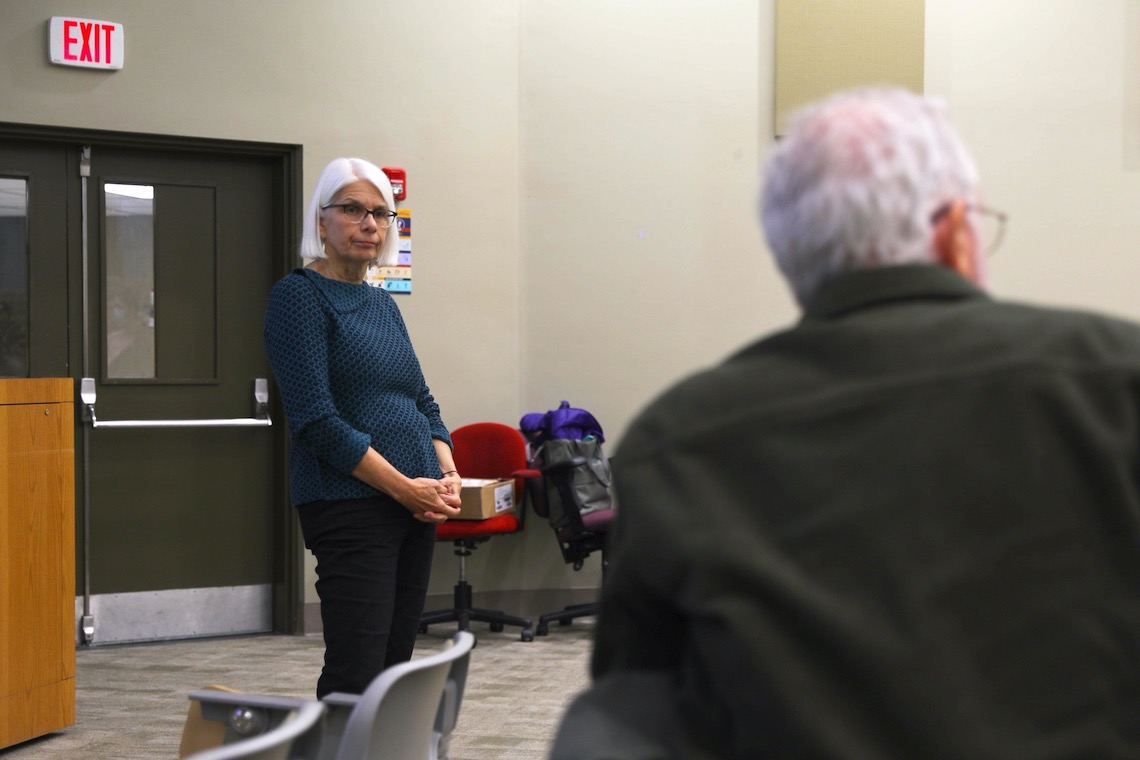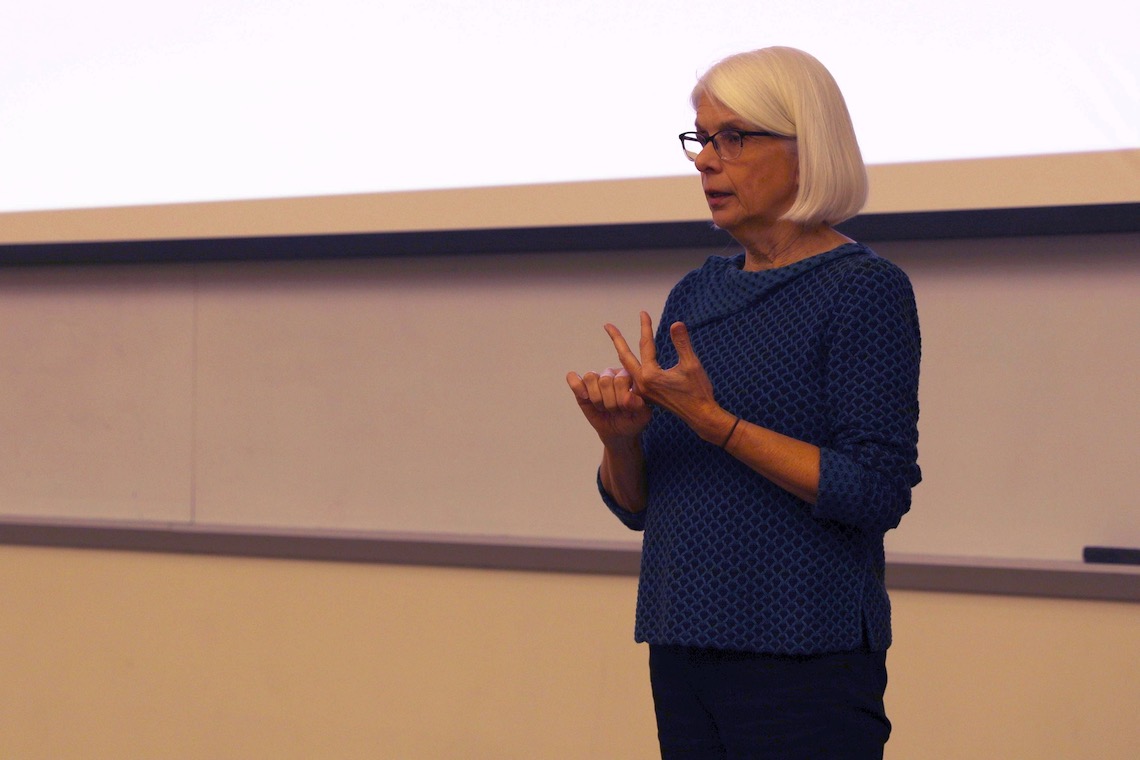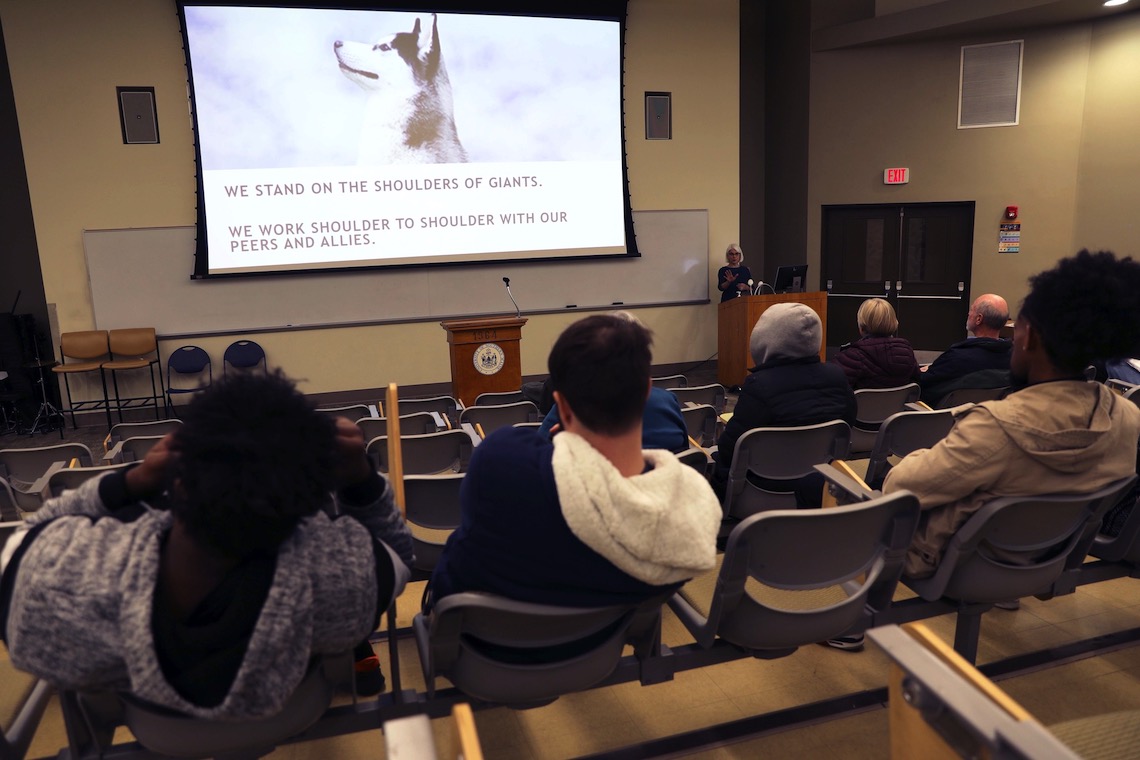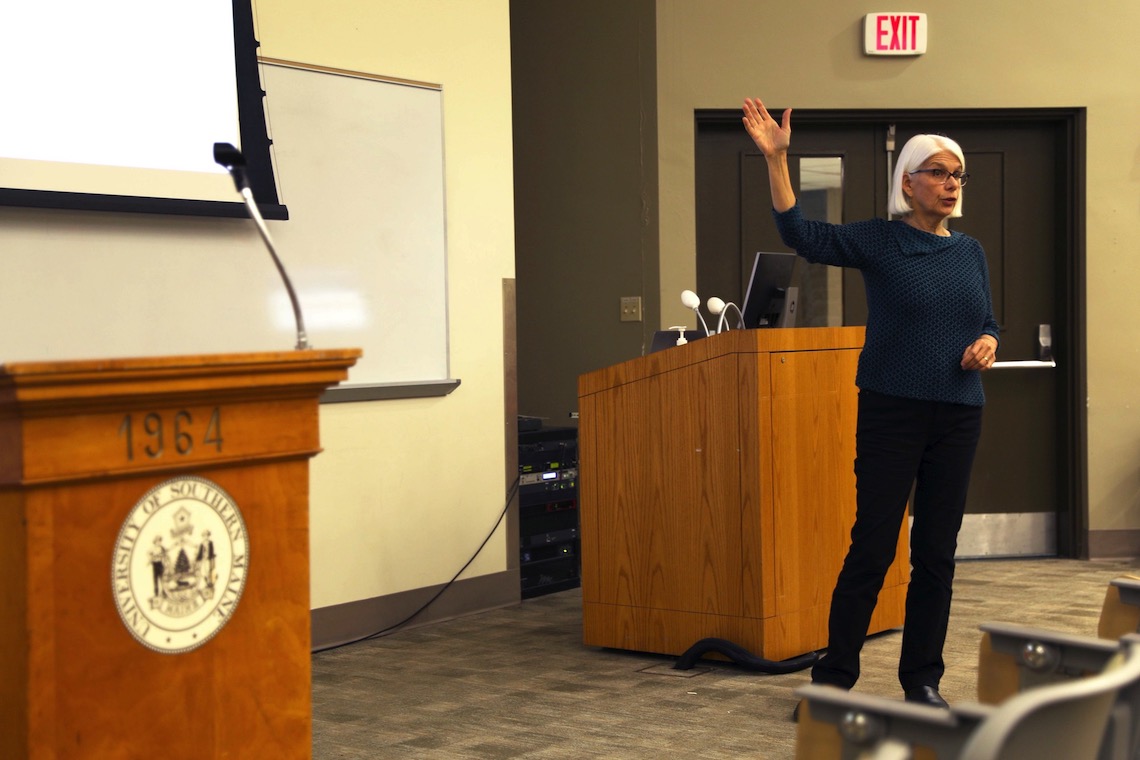An invitation from a drinking buddy to hit the bars can be hard to refuse for somebody who is struggling with sobriety. Those powerful social impulses aren’t inherently harmful, however. Given the right direction, they can even be part of the solution, as explained by Alison Jones Webb in a lecture at the University of Southern Maine.
Jones Webb is an advocate for public health issues, specializing in addiction services and harm reduction. The lessons she learned through field work and personal experience formed the basis of her book, “Recovery Allies.” Its core theme is the importance of community in the treatment of substance use disorder.

Jones Webb spoke on November 17 at the Bailey Hall auditorium in Gorham. She was glad to be back in Maine where she lived for many years before recently moving to Virginia. By sponsoring her visit, the Recovery Oriented Campus Center (ROCC) and the Oakhurst Campus Food Pantry hoped to engage students in an ongoing conversation.
“The take-home message for people in the community is to be a connector,” Jones Webb said. “Connect. That is one of the most important things about supporting people in recovery is to create connections.”
Jones Webb identified five basic traits that distinguish the most effective allies. First, they make good on their commitment to SHOW UP. They LISTEN and then LEARN from what they hear. They SPEAK UP to amplify the voices that are going unheard. And when a need isn’t being met, they are willing to USE RESOURCES at their disposal to help.

Chris Montalto follows those steps through his work in peer support at the ROCC. He’s a junior in the Business program. Montalto would have been a senior this year, but he took a break from his studies to work on his mental health. He came to the lecture for ideas to help others in similar circumstances. The advice that Jones Webb offered about reducing the stigma surrounding recovery services particularly resonated with him.
“Just talking about it (recovery) in general with anybody – your family, friends, teachers, classmates, strangers – just word-of-mouth in a positive manner is definitely a big impactor,” Montalto said.
The wrong words can be just as impactful. Jones Webb advised against using derogatory words like “junkie,” which only perpetuate the stigma of substance use disorder. People who are made to feel ashamed of themselves are less likely to admit their problems and seek help.
“We all make mistakes. The language is changing. And so, what might have been recommended five years ago isn’t recommended any longer,” Jones Webb said. “One thing I always recommend is, if you don’t know the terminology, just ask and be willing to apologize.”

The sense of isolation can be especially intense for people who are wrestling with addiction and also belong to marginalized or underserved communities. The search for solutions to their struggles brought Andrea Carpenter to the lecture.
Carpenter is a junior Sociology major. Having been through recovery herself, she’s seen the problems with the system from the inside. She is now working on a research project about the barriers to recovery faced by the LGBTQ community. In addition to the information she got from the presentation, she later spoke to Jones Webb one-on-one for more specific advice.
“I think something that will really pertain to my research is giving people in the LGBTQ community a community that they feel comfortable in and making sure these recovery spaces are comfortable for them,” Carpenter said.

The ROCC has tried hard to create a friendly campus environment by hosting a range of activities like book clubs, karaoke singalongs, and meditation sessions. According to Jones Webb, people are more willing to ask for help in a place where they already feel welcome. They come for the free s’mores but then stay for the support group.
Another member of her audience had an idea to further broaden the ROCC’s appeal. Aidan Graham is treasurer of the USM Gaming Club. The group brings together students to play board games, card games, and video games. Those kinds of activities seemed to Graham like a good match for the ROCC.
“So maybe organizing some joint event between these two groups would be something very cool,” Graham said.
A partnership with the ROCC also appealed to Graham’s academic side as a senior Political Science major. After hearing from Jones Webb about the lack of research into the work of collegiate recovery programs (CRPs), Graham expressed an interest in pursuing the subject.
Guests to the lecture who wanted to learn more beyond the allotted 90 minutes could pick up a copy of Jones Webb’s book on a table by the main entrance. The ROCC has offices on both the Portland and Gorham campuses. If a mental health emergency arises outside of business hours, help is always available by calling the Maine Crisis Line at 1-888-568-1112.

